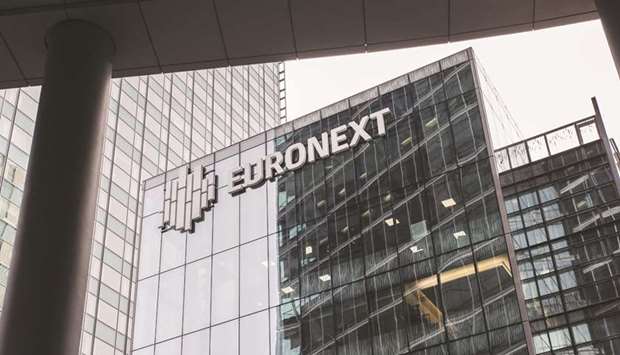The pound retreated yesterday awaiting yet another Brexit vote, after the UK currency struck multi-month highs versus the dollar and euro thanks to British MPs ruling out a no-deal departure from the European Union.
London’s benchmark FTSE 100 index climbed, boosted by softness in the pound which typically helps lift share prices of multinationals. It closed 0.4% up at 7,185.43 points yesterday.
“The pound has pulled away from its multi-month highs against the dollar and euro reached yesterday after the UK parliament voted against leaving the EU without a deal,” said Dean Popplewell, analyst at Oanda trading group.
Attention now turns to Thursday’s vote by British MPs on whether to ask the EU to approve a Brexit delay.
Recent turns in the “Brexit merry-go-round”, as XTB chief market analyst David Cheetham called it, seemed to give rise to some cautious optimism about sterling’s future trajectory.
“The pound will likely remain highly sensitive to headline risk in the foreseeable future but with the range of outcomes now seemingly ranging from May’s deal to increasingly softer versions of Brexit, a lot of the worst downside risks are being priced out the currency and this may pave the way for further gains,” Cheetham said.
Market focus was also on China, with Shanghai’s stock market closing down 1.2% after figures showed the country’s factory output grew slower than forecast in the first two months of the year.
Chinese retail sales and investment were broadly in line with expectations.
The tepid readings highlighted weakness in the world’s number two economy and reinforced the need for measures by the Chinese government to kickstart growth as the global economy stutters and the US trade war drags on.
Eurozone stock markets were firmer at the close, with the CAC-40 index in Paris having set a new high for 2019. It closed 0.8% up at 5,349.78 points.
Frankfurt’s DAX 30 closed 0.1% higher at 11,587.47 points, while the EURO STOXX 50 ended 0.6% up at 3,342.03 points.
Wall Street managed to eke out small gains by the early New York afternoon, after opening flat.
Oil prices initially rose after Opec, citing secondary sources, said that the cartel’s production fell again in February.
A production drop in crisis-ridden Venezuela accounted for more than half of the slowdown, it said in a monthly report.
But by the end of the European trading day, Brent had run into profit-taking while US benchmark WTI held on to its gains.

The Euronext logo is seen on the exterior of the Paris Stock Exchange. The CAC-40 index set a new high for 2019 yesterday, closing 0.8% up at 5,349.78 points.
